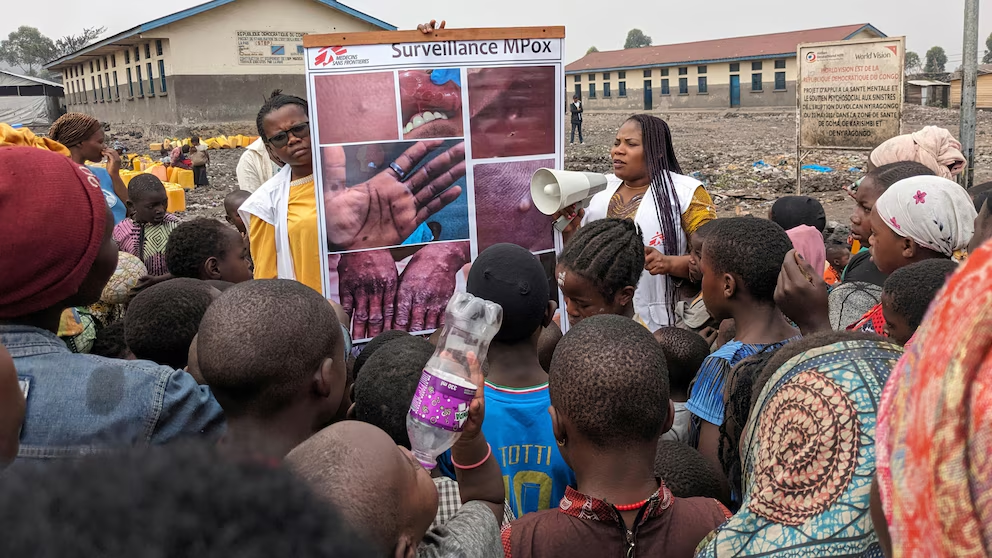GENEVA – The World Health Organization (WHO) has declared Mpox a global public health emergency for the second time in two years, following an escalating outbreak of the viral infection in the Democratic Republic of Congo (DRC). The disease has already spread to several neighboring countries, prompting urgent international action.

An emergency committee convened on Wednesday to advise WHO Director-General Dr. Tedros Adhanom Ghebreyesus on whether the outbreak met the criteria for a “public health emergency of international concern,” or PHEIC. This designation is WHO’s highest level of alert, aimed at accelerating research efforts, funding, and global cooperation to contain the disease.
“It’s clear that a coordinated international response is essential to stop these outbreaks and save lives,” Tedros said in a press conference after the committee’s deliberations. He stressed the importance of global collaboration to prevent the spread of Mpox, noting that while the disease is usually mild, it can be fatal in rare cases.

Mpox, previously known as monkeypox, typically spreads through close contact. The current outbreak, which began in the DRC with the emergence of a new variant known as Clade Ib, appears to be more transmissible than previous strains, raising concerns among global health officials.
“This variant seems to spread more easily through routine close contact, including social interactions,” Tedros added.
The outbreak has already crossed borders into neighboring countries, including Burundi, Kenya, Rwanda, and Uganda, triggering the WHO’s decision to elevate the crisis to an international emergency.
“The detection and rapid spread of this new variant in eastern DRC, as well as its introduction to countries that have not previously reported Mpox, is deeply worrying,” Tedros emphasized.
Since the beginning of 2024, the DRC has reported more than 13,700 cases of Mpox, with at least 450 deaths linked to the virus. The most affected regions are those already grappling with limited healthcare infrastructure due to ongoing conflict, further complicating containment efforts.
“The potential for this outbreak to spread widely across Africa and beyond is very concerning,” said Tedros.

In response to the growing crisis, the WHO has allocated $1.5 million in emergency contingency funds and plans to release more resources in the coming days. The organization’s response plan aims to mobilize donor support and assist affected countries in their efforts to curb the outbreak. WHO has also announced plans to distribute vaccines and antiviral treatments to the affected regions.
Earlier in the day, Africa’s top public health body, the Africa Centres for Disease Control and Prevention (Africa CDC), declared a “public health emergency of continental security.” The organization warned that the outbreak was spreading rapidly, with more than 500 cases reported in neighboring countries in recent weeks.
As the WHO and African health authorities work to contain the outbreak, the global community is being urged to step up support for emergency response efforts. Tedros underscored the need for countries worldwide to prepare for possible Mpox cases and increase their vigilance for the disease.
“This is a critical moment. The world must act swiftly and decisively to bring this outbreak under control before it spreads further and causes more loss of life,” he said.
Reuters



